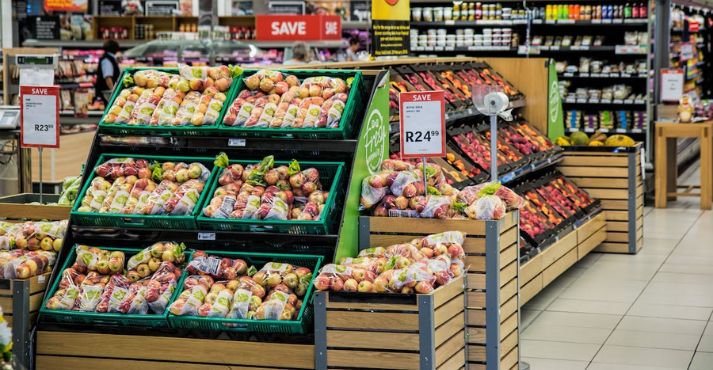In the intricate web of product distribution, a behind-the-scenes player holds a significant position – the wholesaler.
While their name might not be as common as other players, their role is pivotal. Wholesalers serve as the bridge connecting manufacturers and retailers, acting as the linchpin in the supply chain.
This article delves into the world of wholesalers – what they are, what they do, and why they matter. As we unpack the concept, you’ll understand how wholesalers contribute to the smooth flow of goods across industries.
Defining a Wholesaler
At the distribution process’s heart, a wholesaler is a crucial intermediary. Simply put, a wholesaler is a business entity that acts as a middleman between manufacturers and retailers.
Their role is integral in ensuring that products make their way efficiently from the production line to the shelves of retail stores. Some major food wholesalers include Sysco, C&S Wholesale Grocers, United Natural Foods Inc. (UNFI), Performance Food Group, and McLane Company.
The Wholesaler’s Role
Wholesalers operate on a simple yet effective model: they buy goods in bulk from manufacturers and then sell them in smaller quantities to retailers.
This middle-ground approach streamlines the distribution process. Think of wholesalers as the connective tissue that binds the entire supply chain.
Bulk Purchasing Power

One of the defining aspects of wholesalers is their ability to purchase goods in large quantities.
This bulk purchasing power not only benefits manufacturers by ensuring a steady demand for their products but also allows retailers to access a variety of goods without having to buy massive quantities.
This balance between supply and demand is where wholesalers genuinely shine.
Efficient Distribution
Imagine if every retailer had to negotiate directly with every food manufacturer for their products – it would be chaos. Wholesalers bring order to this potential chaos by aggregating products from various manufacturers and offering a consolidated selection to retailers.
This aggregation ensures that products can efficiently flow through different markets, reaching consumers without unnecessary delays.
Functions of Wholesalers
Bulk Purchasing and Inventory Management
Among the many functions that wholesalers undertake, bulk purchasing takes center stage. This function is the cornerstone of efficient inventory management, profoundly impacting the distribution process.
Economies of Scale in Action
Wholesalers are masters of large-scale buying. Imagine a scenario where a retailer purchases a small quantity of a product directly from a manufacturer. Now multiply that quantity by a hundred or even a thousand.
This is where wholesalers come in. By buying in bulk, they tap into the power of economies of scale. This means manufacturers are more inclined to offer lower prices to wholesalers who purchase large quantities, ensuring a win-win situation for both parties.
Steady Supply for Retailers
The significance of bulk purchasing becomes even more apparent regarding inventory management. Wholesalers ensure a steady supply of products for retailers.
This consistency results from their ability to secure large quantities at favorable prices. For retailers, this translates to assurance – they know they can count on wholesalers to deliver the products they need when they need them.
Streamlining Supplier Negotiations
As mentioned above, wholesalers act as the bridge between manufacturers and retailers. Their role in food supplier negotiations is critical.
Wholesalers streamline the negotiation process by dealing with manufacturers directly and in bulk. This benefits both ends of the spectrum: Manufacturers can focus on production, while retailers can rest assured knowing that wholesalers are handling the sourcing process.
Product Aggregation and Variety
If you’ve ever walked into a retail store and marveled at the diverse array of products on display, you’re witnessing the handiwork of wholesalers. Product aggregation is a central function of wholesalers, contributing to the variety on store shelves.
Diverse Selection for Retailers
Wholesalers excel at curating a diverse selection of products from various manufacturers. Picture this: a single wholesaler can offer retailers an extensive product assortment that spans multiple categories – electronics, clothing, and groceries.
This enables retailers to tap into a comprehensive offering that caters to the unique preferences of their customer base.
Efficient Sourcing for Retailers
Imagine if each retailer had to source products from different manufacturers individually. It would be a logistical nightmare. Wholesalers simplify this process by acting as a one-stop shop for retailers.
Retailers can browse through a broad product range offered by wholesalers, making it more efficient to select the items that align with their target audience.
Meeting Customer Preferences
Consumer preferences vary widely. Some customers seek the latest gadgets, while others search for organic foods.
Wholesalers facilitate this diversity by offering retailers a platform to access products that cater to a wide range of tastes and needs. It’s like a treasure trove of options, ensuring that retailers can meet the specific demands of their customers.
Order Fulfillment and Delivery

These functions are pivotal in ensuring that products make their way from food warehouses to the hands of consumers without missing a beat.
Efficient Order Processing
Order fulfillment begins when a retailer places an order with a wholesaler. The wholesaler’s role here is like a conductor – receiving, processing, and coordinating orders.
Through streamlined order processing mechanisms, wholesalers ensure that each order is accurately recorded and promptly acted upon.
Timely Delivery Dynamics
Once the orders are processed, it’s time for the grand finale – delivery. Wholesalers employ a web of logistics to ensure efficient delivery of products.
From choosing suitable carriers to optimizing delivery routes, every detail matters. This meticulous approach minimizes delays and ensures that products reach their destination on time.
Supply Chain Harmony
Imagine if a retailer consistently received products late. It would disrupt the entire supply chain.
Wholesalers play a crucial role in maintaining the harmony of the supply chain by orchestrating the dance of order fulfillment and delivery. This includes coordinating with manufacturers, retailers, and carriers to ensure products are seamlessly transported.
Customer Satisfaction
At the heart of order fulfillment and timely delivery lies the goal of customer satisfaction.
Wholesalers understand that getting customers the right products when needed is crucial for retailers. This is why they invest in systems and strategies that ensure products are delivered as promised.
Significance in Various Industries
Strengthening the Retail Industry through Distribution
When you enter a retail store and find shelves neatly lined with products, you’re witnessing the influence of wholesalers.
In the world of retail, wholesalers play a pivotal role in supporting the retail industry, contributing to its smooth operation and the satisfaction of customers.
Supply Continuity for Retailers
The retail industry thrives on a continuous supply of products.
Through supply continuity, wholesalers help retailers maintain a consistent stock of products. This translates into a reliable shopping experience for customers, who can count on finding their preferred products whenever they visit a store.
Inventory Management Assistance
Imagine a retailer trying to manage inventory from various manufacturers. It’s a complex puzzle.
Wholesalers simplify this puzzle by providing a single point of contact for retailers to access a diverse range of products. This streamlines the process and enables retailers to focus on what they do best – serving their customers.
Retailer Collaboration
The collaboration between wholesalers and retailers is like a symphony. Wholesalers provide various products’ instruments while retailers orchestrate the customer experience.
This collaborative effort results in a shopping journey where customers can easily find what they need, enhancing their overall satisfaction.
Customer-Centric Shopping Experience
At the heart of it all, the retail industry is about catering to customers’ needs. Wholesalers contribute to this by ensuring that retailers have the products they need when they need them.
This translates into a customer-centric shopping experience with stocked shelves, abundant choices, and paramount satisfaction.
Hospitality and Food Services

When you dine at a restaurant or stay in a hotel, you’re experiencing the culmination of efforts by multiple players, and wholesalers stand tall among them.
In the hospitality and food services sectors, wholesalers play a pivotal role in ensuring that restaurants, hotels, and food establishments can operate smoothly and serve guests excellently.
Culinary Supplies at the Core
Imagine a restaurant kitchen without essential ingredients. Wholesalers provide the backbone of culinary creations by supplying the essential ingredients that chefs need.
From the freshest produce to the finest spices, wholesalers ensure that the magic of flavors comes to life on your plate.
Equipment Provision for Excellence
Behind the scenes, the hospitality industry relies on a vast array of equipment to ensure seamless operations. Wholesalers step in as providers of these crucial tools.
From kitchen appliances to dining room essentials, wholesalers ensure that hotels and restaurants have the necessary equipment to create a hospitable and efficient environment.
Nurturing Culinary Creativity
In the culinary world, innovation is critical. Wholesalers contribute by offering a wide range of culinary supplies, allowing chefs to experiment and create without limitations.
This variety supports culinary creativity, enabling food establishments to offer diverse and exciting menus that cater to varying tastes.
Operational Efficiency
For hotels and food services, efficiency is essential. Wholesalers streamline operations by providing a one-stop destination for all their needs.
This enables businesses to focus on delivering exceptional experiences to guests rather than spending time sourcing ingredients and supplies from multiple sources.
Manufacturing and Production
In manufacturing and production, the journey of a product from creation to the hands of consumers is complex.
Here, wholesalers emerge as essential players, connecting manufacturers to a vast array of retailers and contributing to the expansion of product accessibility and market reach.
Expanding Market Horizons
Manufacturers pour their expertise into creating products, but they need to reach a broader market for these products to shine genuinely.
Wholesalers serve as the conduits for this expansion. Through their distribution networks, wholesalers ensure that products reach retailers far and wide, enabling manufacturers to tap into new markets and audiences.
Extending Product Reach
Imagine a manufacturer with limited resources trying to distribute products to numerous retailers scattered across different regions with the help of a food distributor.
This is where wholesalers step in. By acting as intermediaries, they extend the product reach of manufacturers.
Wholesalers are equipped to efficiently transport products to various destinations, allowing manufacturers to reach retailers they might not have been able to on their own.
Strengthening Manufacturer Partnerships
Wholesalers and manufacturers are like collaborators in a symphony. Wholesalers understand the nuances of different markets and customer preferences.
They collaborate with manufacturers to ensure products are strategically positioned to maximize sales potential. This partnership between wholesalers and manufacturers strengthens the entire production and distribution process.
Market Accessibility
Accessibility is a cornerstone of business success. Wholesalers provide manufacturers with the key to accessing markets that might have been previously out of reach.
This accessibility is not just about geographical locations but also about tapping into diverse retail channels that cater to different consumer segments.
Final Thoughts
As we draw the curtain on exploring wholesalers’ roles, remember that their significance reaches beyond the products they distribute. They are the architects of efficient distribution, the champions of streamlined logistics, and the supporters of industries.
The next time you encounter a well-stocked shelf or savor a delectable meal at a restaurant, remember that wholesalers made it possible – one efficient connection at a time.













